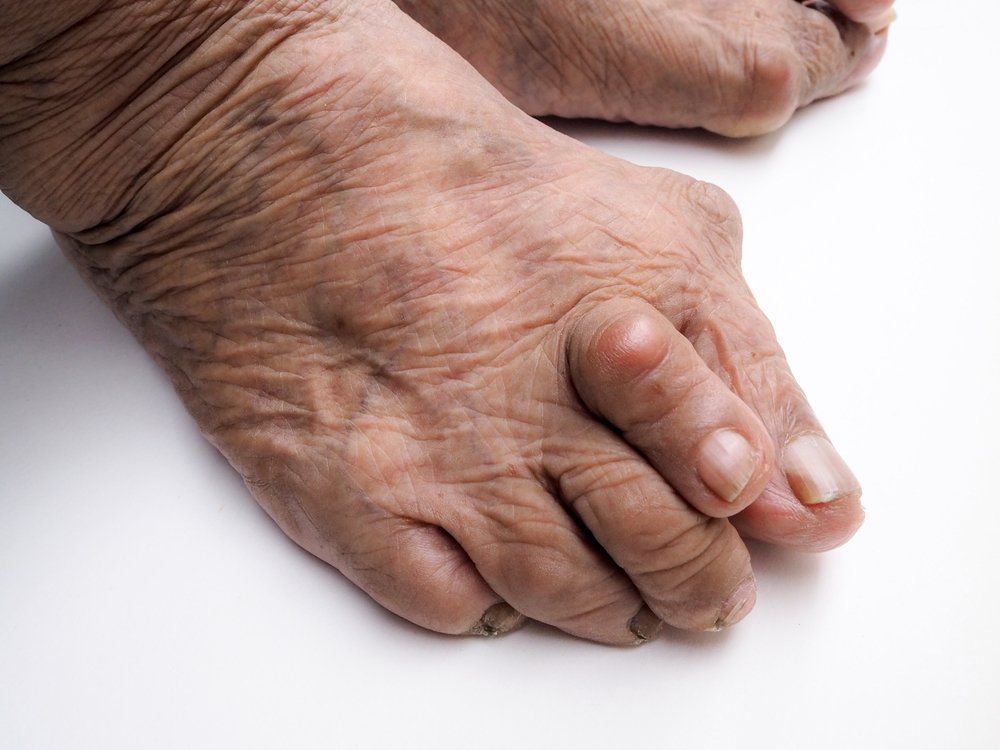Article
Genetic Risk Contributes to Gout Regardless of BMI Measure
Regardless of BMI level, having a genetic susceptibility for gout may be a stronger predictor of disease than weight, say researchers writing in Arthritis and Rheumatology this week.
(©Penton,Shutterstock)

Regardless of BMI level, having a genetic susceptibility for gout may be a stronger predictor of disease than weight, say researchers writing in Arthritis and Rheumatology this week.
In this study, Nicola Dalbeth, M.D., of the University of Auckland, and colleagues analyzed 358,728 records of patients of European ancestry. They divided patients into three BMI groups: less than 25 kg/m indicating a low/normal BMI; 25-30 kg/m deemed overweight; and greater than 30 kg/m which was categorized as obese.
The presence of gout was found to be higher in patients with a higher than average genetic risk score in patients against in all three BMI groups: low/normal BMI (0.27% vs 0.77%), overweight BMI group (1.02% vs 3.02%), and obese BMI group (2.49% vs 6.23%). For patients who had scored less than average on the genetic risk score, gout was detected in the low/normal BMI group (OR [95% CI] 2.89 [2.42â3.47]), overweight BMI group (3.09 [2.84â3.36]), and obese BMI group (2.65 [2.46â2.86]).
Previous studies have described a higher association between gout and excess weight. In 2014, Aune D. published a systematic review and meta-analysis of 10 prospective studies of BMI and gout risk in the European Journal of Nutrition. They reported relative risks of 1.78, 2.67, 3.62, and 4.64 for individuals with BMI 25, 30, 35, and 40 respectively compared with individuals with a BMI of 20.
In this study, “In this large cohort of European ancestry, we have shown that a higher urate genetic risk score is associated with an increased odds of gout in individuals across all BMI groups. This effect is slightly attenuated in obese people compared to overweight people. However, genetic variants have a strong effect on gout risk in those with overweight and obese BMI, with a similar effect to that observed with low/normal BMI,” researchers wrote.
REFERENCE
Vicky Tai Ravi K. Narang Greg Gamble, et al. "Do serum urateâassociated genetic variants differentially contribute to gout risk according to body mass index? Analysis of the UK Biobank," Arthritis and Rheumatology. Feb. 2, 2020.




